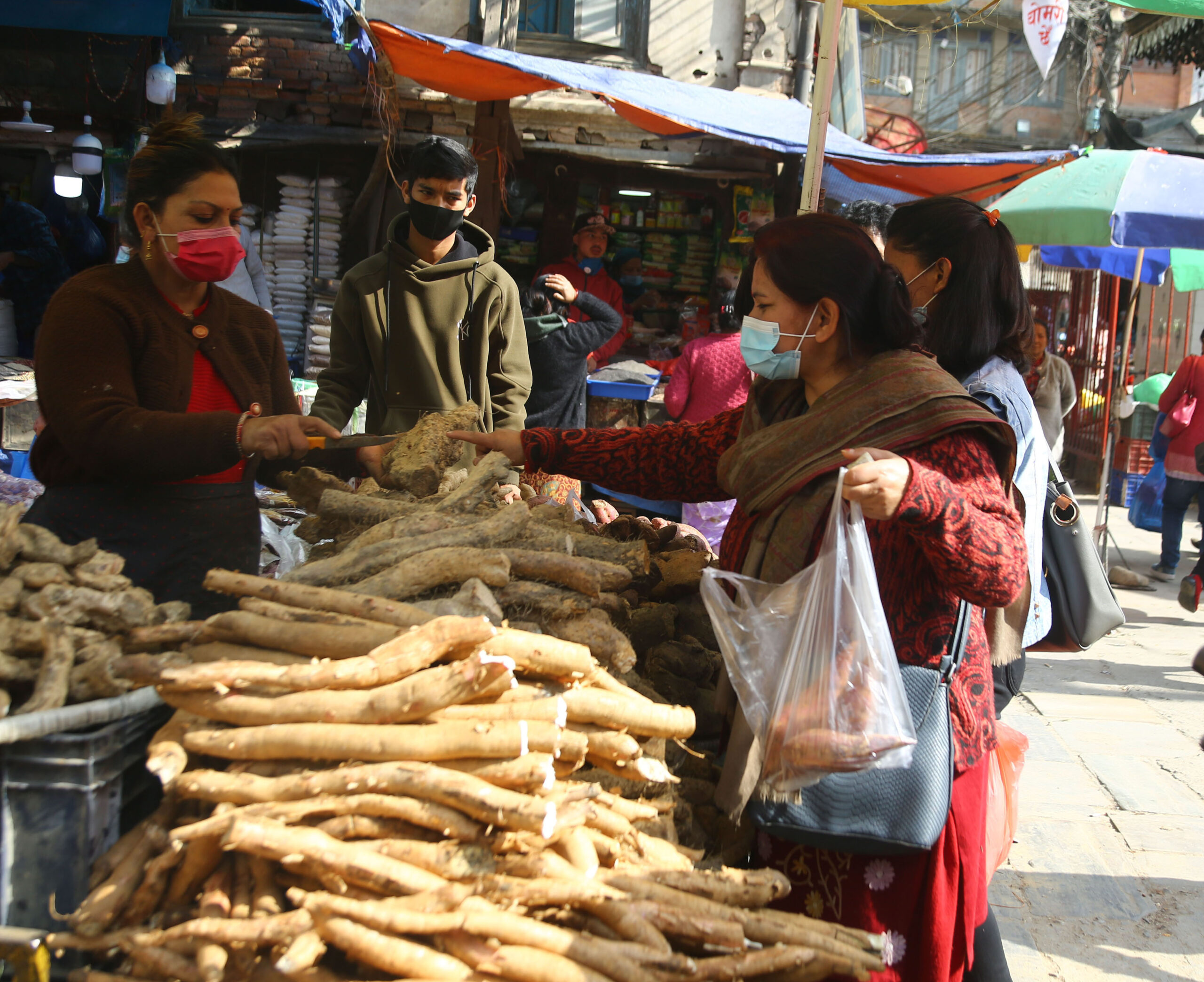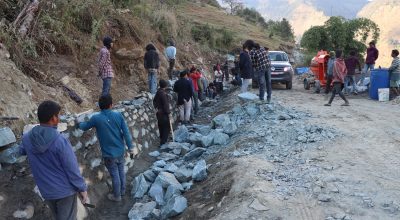
Narayan Neupane
Kathmandu: The government has decided to observe the first National Agricultural Biodiversity Day on January 15. The celebration of the Day coincides with ‘Maghe Sankranti’, one of the festivals of the country that falls on January 15 this year. Slogan for the Day is ‘biodiversity for life and environment’.
‘Maghe Sankranti’ that connects the society, culture, tradition, geography and all ethnic groups of the country is celebrated by preparing and savouring various delicacies including boiled yams and sweet potatoes and chaku in particular.
So, the government decided to celebrate the Day on ‘Maghe Sankranti’, said Dr Gobinda Prasad Sharma, Secretary at the Ministry of Agriculture and Livestock Development.
“Maghe Sankranti is a cultural festival observed by all communities. What the Nepali society consumes during the festival is linked with agricultural biodiversity,” he said.
Stating that agricultural biodiversity is the main basis for food and nutrition security, livelihood of poor and marginalised communities and clean environment, the government through the budget for the current fiscal year, 2022/23 announced to observe the Day, and as part of it, it has been launching various programmes.
Although Nepal is rich in biodiversity, factors like habitat destruction, rampant farming in the name of modern agriculture and other human created causes have been dwindling biodiversity as a whole, it has been said. As a result, around 40 percent of indigenous crops, grass, livestock, marine creatures and insects are estimated to have been disappeared.
Local communities have a major role and responsibility in protecting agricultural biodiversity and its sustainable use.
Maintaining that there are a total of 5,500 edible vegetation and plants in the world, experts said the existence of the whole human will be at risk for failure to conserve these vegetation. ‘Maghe Sankranti’ is celebrated as a Day of diversity, reasoning food diversity is connected to culture, said Ram Krishna Shrestha, Director of the Centre for Crop Development and Agro Biodiversity Conservation Centre.
“Our festivals, customs and practices are integral parts of agricultural biodiversity. There is an interconnected relation between agricultural biodiversity and Maghe Sankranti,” he said.
The weeklong Day will be observed with various programmes. As part of it, formal and informal food fairs and interactions in coordination with the center, province and local levels will be organised.
Similarly, contributors to agricultural biodiversity will also be honoured. The Day aims to develop importance of agricultural biodiversity, its mainstreaming and methodologies and systems for protecting it, it has been said. Awareness and publicity programmes will also be organised, and various materials on the matter published.












